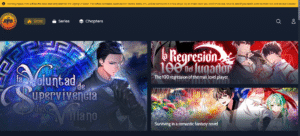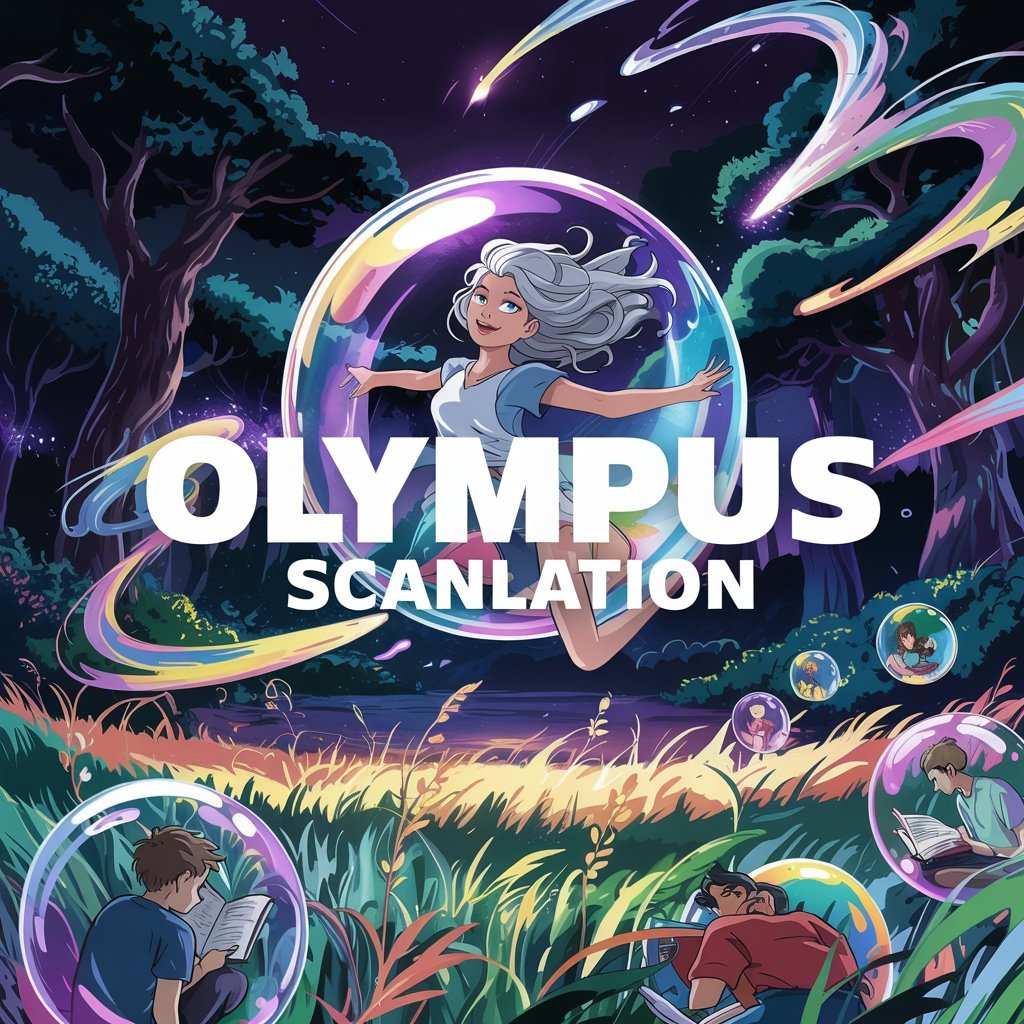Over 60% of manga titles are never officially translated outside of Japan. That’s right — most global fans never get the chance to experience these incredible stories. For passionate readers, that’s frustrating and for creators, it’s limiting. For the global manga community, it’s a gap. Enter Olympus Scanlation.
They don’t just translate manga — they unlock entire worlds. Carefully, ethically, and with a fierce commitment to quality, they take stories trapped behind language barriers and set them free.
This isn’t some casual hobby either. It’s a structured, community-driven effort that involves translators, proofreaders, editors, and fans collaborating across time zones. Together, they ensure manga fans can enjoy stories months (or even years) before official versions arrive—if they ever do.
In this guide, I’m going to walk you through how Olympus Scanlation works, why they matter, and how they’ve built a trusted name in the global manga scene.
By the end, you won’t just understand them — you might even want to join them.
What is Olympus Scanlation?
Olympus Scanlation is a team of passionate manga lovers who voluntarily translate, edit, and distribute Japanese manga for free. Their goal is simple: to share beautiful, exciting, and touching stories with fans who would otherwise miss out due to language barriers. They do this through a process called “scanlation,” a term that combines “scanning” and “translation.”
In simple terms, they take Japanese manga, scan the pages, clean them up, translate the dialogue and text, and then create new versions in other languages. These are then shared online for manga fans to read and enjoy.
Understanding the Roots of Scanlation
While today’s scanlation groups like Olympus are well-organized and efficient, their origins trace back to much humbler beginnings. The roots of scanlation lie in early internet communities—message boards, IRC channels, and forums—where fans shared raw manga scans long before official translations became accessible outside Japan.
In the 1990s and early 2000s, anime and manga were still considered niche in many parts of the world. Western publishers licensed only a small fraction of popular titles, and even then, the localization process was slow, censored, or heavily adapted to “suit” international markets. This left international fans starved for content—and out of that frustration, scanlation was born.
Early scanlators were passionate fans who didn’t have access to advanced editing tools or polished workflows. They manually scanned pages from imported manga volumes, translated dialogue line-by-line in simple text files, and posted them on fan forums. Even with crude image editing, these efforts sparked a movement rooted in love for the medium and a desire for authenticity.
Olympus Scanlation is a product of this evolution. While their work is high quality and carefully structured today, they stand on the shoulders of those early fan communities who believed that manga should be shared, respected, and experienced as intended—without unnecessary filters or delays.
This foundation of passion and resistance to publishing limitations continues to fuel the scanlation movement, making it both a creative outlet and a cultural rebellion.

Visitors to Olympus Scanlation’s old site are now directed to a new platform with a faster, updated experience.

The new site, zonaolympus.com, showcases popular series with a clean layout and easier navigation.
Why Scanlation Exists
Some might wonder why scanlation even became popular. The answer is straightforward. Many manga titles never get officially licensed outside of Japan. Licensing can be a long and expensive process. Even when manga gets licensed, there can be long delays before translations reach fans. Olympus Scanlation helps fill this gap. Thanks to them, readers don’t have to wait years to experience stories loved in Japan.
You Might Also Like: Kaliscan – a rising scanlation group known for translating Korean webtoons.
The Scanlation Process
You might think scanlating manga is simple, but the process is far from easy. It takes time, skill, and dedication. Here’s how Olympus Scanlation typically does it:
- Scanning:
The process starts with getting physical copies or digital scans of the manga. The team carefully scans each page to create high-quality images that can be edited later. - Cleaning:
The scans often have marks, uneven lighting, or handwritten text. The cleaning team uses special tools to remove imperfections, ensuring the pages look crisp and clear. - Translating:
Next, the translation team steps in. They are usually fluent in Japanese and English (or another target language). They carefully read and translate every piece of text on the page. This includes dialogue, sound effects, and notes. - Typesetting:
Once translated, the new text needs to be placed back into the manga. Typesetters choose fitting fonts and position the text naturally so it blends well with the artwork. - Proofreading:
Before release, proofreaders double-check everything. They fix grammar, make sure translations make sense, and ensure nothing important was missed. - Releasing:
Finally, the completed manga chapter is uploaded online for fans to read and enjoy.
Every step requires careful coordination and teamwork. Olympus Scanlation takes pride in the quality of their work. They don’t rush the process just to get chapters out quickly. Their focus is on delivering accurate and enjoyable translations.
Step-by-Step Breakdown of the Full Scanlation Process
🔹 Step 1: Acquiring the Raw Manga
Everything begins with the raw scans. These may come from purchased manga volumes, magazine issues, or digital subscriptions. Scanners capture each page using high-resolution settings to ensure image clarity. Physical copies require careful handling to avoid page creases or shadows.
🔹 Step 2: Cleaning the Pages
The raw scans are usually filled with blemishes—scanner dust, shadows, curved lines, or watermarks. Cleaners use tools like Photoshop or GIMP to digitally erase Japanese text, smooth out line art, adjust contrast, and resize the panels to standard formats. This step is crucial to making the final product visually seamless.
🔹 Step 3: Translation
The raw Japanese text is then passed to skilled translators. These volunteers often have advanced fluency in Japanese and deep familiarity with slang, dialects, and cultural references. Their job is not just to translate literally but to preserve the tone, humor, and emotion of each scene. Sound effects (SFX), honorifics, and onomatopoeia are also considered—should they be kept, translated, or hybridized?
🔹 Step 4: Proofreading
After initial translation, a proofreader revisits the script to catch grammar mistakes, awkward phrasing, or inconsistencies. They collaborate with the translator to ensure cultural references make sense in the target language and that important plot nuances are preserved.
🔹 Step 5: Typesetting
This is where the magic comes together. The typesetter places the translated text into the manga panels using graphic design tools. They must match the font style and size to the original tone—whether it’s a whispered confession or a battle cry. Text must also fit natural speech bubbles without distorting artwork.
🔹 Step 6: Quality Check & Review
A final quality control pass checks for visual glitches, spelling issues, or missing dialogue. If anything looks off—even a single punctuation mark—it’s fixed before release. Olympus Scanlation prides itself on this layer of polish.
🔹 Step 7: Publishing
Once approved, the finished chapter is uploaded to fan-sharing platforms, Discord servers, or manga databases. Olympus often includes credits, disclaimers, and sometimes translator notes for full transparency.
Every chapter is the product of hours of teamwork. Unlike amateur scanlation dumps, Olympus upholds a standard of excellence. It’s not about rushing to be first—it’s about doing it right.
How to Join Olympus Scanlation
Interested in contributing to Olympus Scanlation? They regularly welcome new volunteers for roles such as:
Translators (Japanese to English or other languages)
Proofreaders (Grammar and consistency checks)
Cleaners (Removing original text and image touch-up)
Typesetters (Inserting translated text using design software)
Volunteers should have a good grasp of English, be detail-oriented, and be willing to collaborate across time zones. The application process typically starts by messaging them through their recruitment page or Discord server. Training and feedback are provided, making it a great way to improve your language or editing skills while giving back to the community.
How Olympus Scanlation Balances Fan Access with Legal and Ethical Concerns
Scanlation exists in a legal gray area, but Olympus Scanlation works to operate as ethically as possible. They don’t monetize their efforts, and they stop working on any series that gets licensed in the target language. This sets them apart from groups that ignore legal boundaries.
Their goal isn’t to compete with publishers—it’s to fill the gaps left behind. Many of the manga they translate are niche titles that might never get picked up officially. They see themselves not as pirates, but as cultural caretakers—sharing stories that would otherwise be lost to most global fans.
By maintaining transparency and respecting official releases, Olympus builds trust with its audience. They don’t claim ownership over the content. Instead, they offer a bridge between creators and readers, while always encouraging support for the official work when it becomes available.
Top Manga Series Translated by Olympus Scanlation
Olympus Scanlation is known for picking high-quality, under-the-radar manga that often go unnoticed by mainstream publishers. While they don’t always promote specific series publicly, fans recognize Olympus for consistently bringing thoughtful, emotionally rich, or action-packed titles to a global audience.
Some of the most popular series scanlated by Olympus include genres like:
Romantic dramas with deep character development
Historical fantasy set in mythical landscapes
Modern slice-of-life that reflect real emotional struggles
These choices reflect the team’s mission to go beyond mainstream manga and give voice to stories that deserve wider attention.
Community and Team Spirit
One of the most impressive things about Olympus Scanlation is their team spirit. Members work voluntarily and often live in different parts of the world. Despite time zones and busy personal lives, they stay connected through online platforms.
Communication is key. Team members use messaging apps, forums, and collaborative tools to assign tasks, discuss tricky translations, and support each other. This sense of community creates a positive and motivating environment.
Fans also play a big role in Olympus Scanlation’s success. Supporters help spread the word, suggest new series, and even offer feedback. This two-way relationship between the team and fans helps Olympus Scanlation grow and improve.
Ethics and Respect for Creators
A common criticism of scanlation groups is that they distribute manga without the creator’s permission. Olympus Scanlation understands these concerns and handles them with care. They have strict ethical guidelines.
For example, if a manga becomes officially licensed in a language they are scanlating into, they will stop releasing new chapters of that series. This shows respect for the publishers and creators who make these stories possible.
Additionally, Olympus Scanlation operates on a non-profit basis. They do not charge readers or make money from their work. Their mission is purely about sharing stories, not generating income.
Why Olympus Scanlation Stands Out
There are many scanlation groups, but Olympus Scanlation has earned a strong reputation for several reasons.
Quality:
They maintain high standards in their work. From translations to typesetting, everything is polished and professional.
Reliability:
Fans know they can count on Olympus Scanlation to deliver regular updates. They communicate openly about delays or issues, building trust within the community.
Community Involvement:
They actively encourage fans to join discussions, give feedback, and even apply to become team members.
Ethical Approach:
By respecting licensing boundaries and operating non-commercially, they stay aligned with ethical guidelines many fans appreciate.
What Tools Does Olympus Scanlation Use?
The Olympus Scanlation team uses a suite of professional-grade and open-source tools to ensure high-quality releases:
Photoshop or GIMP for cleaning and typesetting
Aegisub or similar tools for typesetting and font placement
Google Docs / Sheets for translation coordination
Discord or Slack for team communication
Cloud storage platforms for file sharing and version control
This organized workflow ensures consistency, speed, and quality across multiple team members and projects—something that sets Olympus apart from more casual scanlation groups.
You Might Also Like: Anime Pahe – fan‑supported anime streaming platform offering a vast library of titles, updated regularly
Real Stories from Olympus Scanlation Team Members
What makes Olympus Scanlation special isn’t just their quality—it’s the people behind the work. Their team includes students, working professionals, and passionate fans from around the globe. Many join with limited experience and grow into highly skilled translators, designers, and project coordinators.
One member shared that learning typesetting for Olympus eventually led to a paid internship in graphic design. Another said joining helped them reconnect with their heritage and improve their Japanese through real-world use. Some volunteers say Olympus gave them more than just editing skills—it gave them purpose and connection during isolating periods of life.
Challenges in the Scanlation World
Despite their success, Olympus Scanlation faces challenges. Legal risks are always a concern. While they operate carefully, scanlation itself is legally gray in many countries.
Recruiting and retaining volunteers is another challenge. Scanlation requires skill and commitment, and burnout can happen. Olympus Scanlation often welcomes new applicants to keep the team running smoothly.
Finally, staying motivated while balancing real-life responsibilities can be tough. Many team members are students or working professionals. Their dedication is truly admirable.
Olympus Scanlation’s Impact on the Manga Community
The influence of Olympus Scanlation goes beyond just releasing manga. They help bring international attention to lesser-known titles. In some cases, fan popularity generated by scanlations has even led to official licensing in other languages.
For readers, Olympus Scanlation offers more than just access. They provide translations that capture cultural nuances, jokes, and references that may be lost in official versions. This makes the reading experience richer and more authentic.
Moreover, their work inspires others. Many former members of Olympus Scanlation have gone on to work in professional translation, publishing, and media roles.
The Future of Olympus Scanlation
Looking ahead, Olympus Scanlation continues to adapt. They are always improving their techniques, recruiting fresh talent, and exploring new ways to engage fans.
However, the landscape is changing. Official publishers are releasing more manga in various languages faster than ever before. This could reduce the need for scanlations in the future.
Still, Olympus Scanlation’s role remains important. They fill gaps left by publishers and keep rare, niche titles alive in readers’ hearts.
How You Can Support Olympus Scanlation
You might wonder how to support a group that operates for free. There are several ways:
- Spread the Word: Share their releases and help others discover hidden gems.
- Join the Team: If you have skills in translation, editing, or typesetting, consider applying.
- Respect Licensing: If a manga you enjoy becomes officially licensed, support it by purchasing legal copies.
- Give Feedback: Positive and constructive feedback keeps the team motivated and helps them improve.
FAQs
Is Olympus Scanlation safe to read?
Yes. Their site and releases are free of ads, viruses, or shady links. They don’t host on risky platforms and prioritize reader trust.
How can I join the team?
They regularly accept volunteers for roles like translation, cleaning, proofreading, and typesetting. Just reach out via their Discord or recruitment page.
Do I need experience?
Not always. Many new volunteers start with training and feedback from the team. A willingness to learn is often more important than skill.

